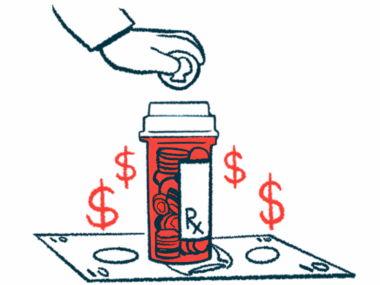Project working to improve speech recognition software seeks patients
Speech Accessibility Project collecting recordings from people with Parkinson's
Written by |
The Speech Accessibility Project continues to seek participants for its initiative, which focuses on enhancing voice recognition software for people facing speech difficulties like those associated with Parkinson’s disease.
The project gathers voice recordings from people with Parkinson’s and related neurological conditions, such as multiple system atrophy and progressive supranuclear palsy. It also collects recordings from those in the postoperative phase of deep brain stimulation (DBS).
“You have the potential to help yourself and hundreds of thousands [of people] with speech issues by signing up for the Speech Accessibility Project,” Michael Quaglia, a Parkinson’s advocate who participated in the project, said in a press release.
Recruitment is open to adults, age 18 and older, in the U.S. Almost half of the project’s participants are enrolled. Applications are made via the Speech Accessibility app. Recruitment is being led by the Davis Phinney Foundation and LSVT Global.
People with Parkinson’s disease may have speech difficulties that can worsen as the disease advances. These include trouble speaking clearly, slurring, mumbling, or speaking too quickly with stuttering or stammering.
Improving speech for Parkinson’s patients
“Society does not appreciate just how disabling the loss of written and verbal communication can be,” said Kevin Kwok, a retired biopharmaceutical executive with Parkinson’s. “As an early adopter living with Parkinson’s, I have attempted to use currently available voice recognition software and dictation tools with minimal success. As my voice quality continues to degrade and become inaudible, the current tools often require more effort to correct, which can be extremely frustrating. It can push a person who was at one time very interactive into social isolation.” Kwok also serves on the Davis Phinney Foundation board of directors.
The Beckman Institute for Advanced Science Technology at the University of Illinois Urbana-Champaign (UIUC) is leading the project with support from Amazon, Apple, Google, Meta, and Microsoft.
“I’m honored to participate alongside the industry leaders in technology to build a system to help understand speech and communication and train machine learning models,” said Ethan Henderson, an ambassador at the Michael J. Fox Foundation for Parkinson’s Research who participated in the Speech Accessibility Project. “As a former singer, I know how important the voice is. Shortly after my Parkinson’s diagnosis, I started having speech difficulties. Many people with neurodegenerative brain diseases have speech problems — volume, diction, among other issues.”
All enrollment informtion is safely kept by UIUC and team members edit out participants’ identifiable information before it’s distributed to the tech partners, who will use the recordings to train their speech recognition tools to recognize the speech of people with Parkinson’s.
“Recording voice samples is easy and can be done in the comfort of your home. The project’s staff make it very straightforward and are there to assist if you have questions. I find participating is my way of paying it forward to friends, family, and future generations who live with Parkinson’s […], and other conditions that affect speech,” Henderson said.
“We are so honored to be part of this important project,” said Polly Dawkins, the executive director of the Davis Phinney Foundation. “As soon as we received the green light, we shared it with our community because we always want to be first movers when it comes to technology that can benefit those with Parkinson’s. We continue to receive feedback from those who have participated about how good it feels to contribute and be part of an effort that may mean more independence for people living with Parkinson’s.”
Participants will work with an LSVT Global mentor, which will explain the project’s details and conduct a brief screening process. They can use their own personal computers to make the recordings of provided text prompts, read aloud, or answer questions. The program includes 10 sets of about 45 prompts (about 60 sentences). The recordings can be saved over a few days or weeks and participants can earn $180 in Amazon eCodes.






